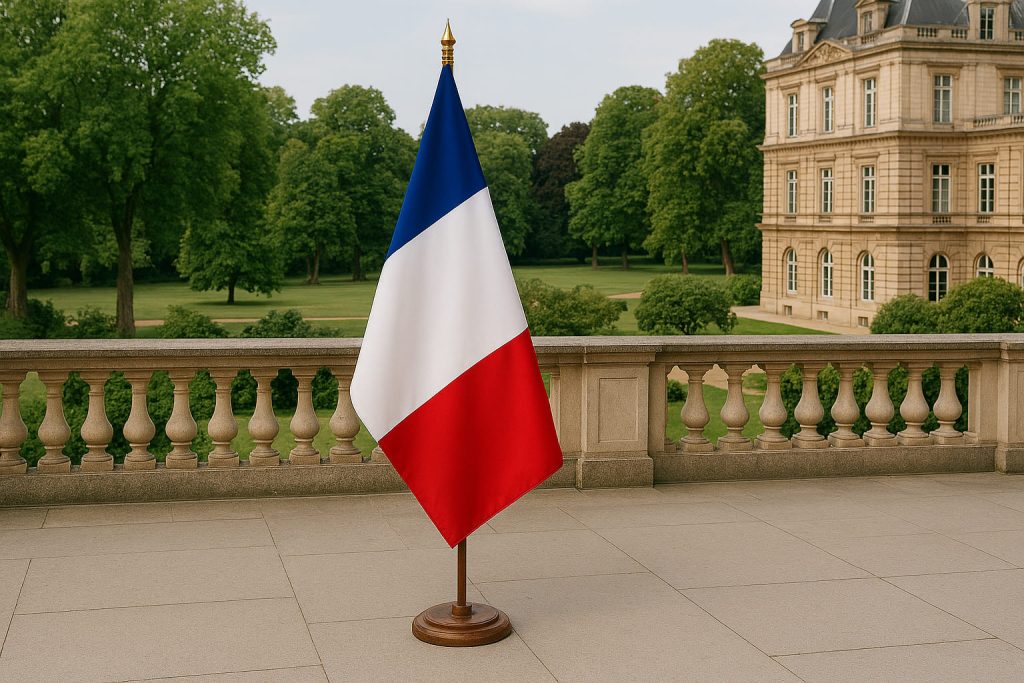[FR] From Prague to Bratislava: Macron in the quicksand of European populists

Announced since the beginning of the year, President Macron’s trip to Slovakia and the Czech Republic will finally take place on October 26 and 27, 2018. The date is highly symbolic, as it was on October 28, 1918 that the Czechoslovak Republic, a country that France was the first to recognize as a sovereign state, was created from the ruins of Austria-Hungary. This visit, beyond its historical and symbolic dimension, will also bring back to the forefront the issues surrounding the relationship between France and the Visegrad countries (Hungary, Poland, Czech Republic, Slovakia) and the European sentiment among the political leaders of these countries. Far from the rule of law infringement procedures launched respectively by the Parliament and the Commission against Hungary and Poland, the political situation in Prague and Bratislava also raises certain concerns.
Czech Prime Minister Andrej Babiš had to wait nearly a year to form a complete government. This interim period made him feel out of the European mainstream; no high-level visits were organized in Prague during this year, which isolated Babiš, who was seeking recognition from his peers, and paradoxically brought him closer to Viktor Orbán, who saw in Babiš a potential ally of convenience. In recent months, Babiš has repeatedly expressed his disagreement with the Commission’s proposal for the post-2020 budget, reaffirmed his absolute opposition to mandatory refugee relocation mechanisms, and voiced strong criticism of FRONTEX’s actions. Macron’s visit could therefore have a significant psychological impact to smooth over differing views on these issues, especially in view of a potential alliance with European parliamentarians from Babiš’s party (ANO), which sits in the ALDE group, a group La République en Marche is eyeing ahead of the May 2019 European elections.
However, it is worth noting that clouds may be gathering over Babiš, who has been accused by the EU’s Anti-Fraud Office (OLAF) of misappropriating €1 million in regional funds for the benefit of his company. An investigation is underway by the Czech national police (which handles such cases), in which Babiš has intervened directly or indirectly, by forcing the head of the criminal police to resign, or by obstructing the proper conduct of the investigation, particularly by preventing key witnesses, including close associates or family members, from testifying. This case is highly symbolic of the control the Czech Prime Minister wishes to exert over the institutions of his country, and his limited inclination to share power, both at the national level and within his own party, which has a very vertical structure.
President Macron’s visit to Bratislava will also be surrounded by questions about Slovak political power. Just one year after the assassination of journalist Ján Kuciak, only a few leads have been mentioned regarding the perpetrators of the murder, most of which are linked to Italian mafia groups operating in the east of the country. It was revealed in the aftermath of Kuciak’s death that a close adviser to then-Prime Minister Robert Fico (PES) had close ties with such groups, and that the controversial former Interior Minister Robert Kaliňák had protected these groups’ activities. A mass citizen mobilization (Za slušné Slovensko – For a Decent Slovakia) filled the streets for several months before tapering off, although its demands were not met. Far-right parties, which are part of the governing coalition, continue to promote distrust of journalists, particularly the Speaker of the Lower House, Andrej Danko. Pro-European Slovaks were dealt a serious blow by the decision of outgoing President Andrej Kiska not to run again in the upcoming presidential elections, given that the political climate is rife with distrust, and that Kiska represented a beacon of hope against long-standing practices of the ruling power over the past ten years.
It is therefore in this challenging context that President Macron will carry the French voice to Central Europe. Even though the Czech Republic and especially Slovakia present themselves as constructive European partners, certain differences in views, particularly regarding the future EU budget and migration issues, will be noticeable. Beyond that, this visit will also be an opportunity to discuss the future of European governance, including the possible candidacy of Miroslav Lajčák, the current Slovak foreign minister, for the position of High Representative for Foreign Affairs of the EU, for which France’s support will be key.




